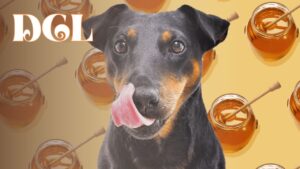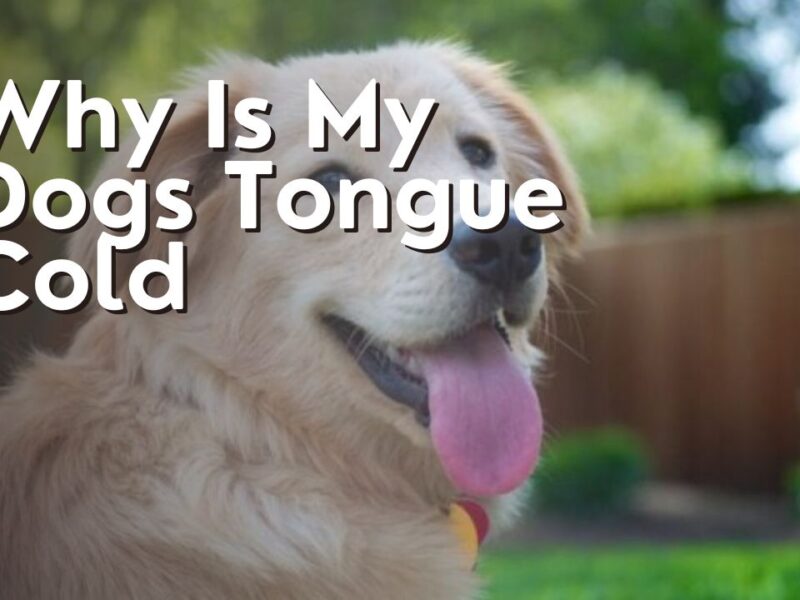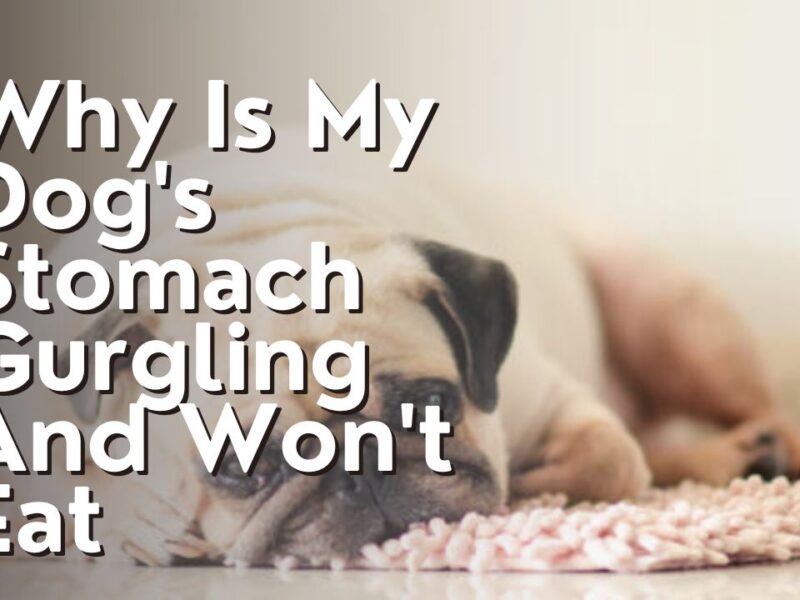As a dog owner, I often find myself questioning what foods are safe and beneficial for my furry friend. One such query that often comes up is, can dogs eat honey?
In this article, I will explore the potential benefits, considerations, and risks of feeding honey to dogs. By understanding the facts, we can make informed decisions about incorporating this sweet treat into our dog’s diet.
So let’s dive in and find out if honey is a safe and healthy option for our canine companions.
The Benefits of Honey for Dogs
Dogs can definitely enjoy the benefits of honey in their diet. As a dog owner, I have discovered that honey can provide various advantages for my furry friend.
First and foremost, honey is a natural sweetener that can be a healthier alternative to processed sugars. It contains essential vitamins and minerals such as vitamin C, calcium, and iron, which can contribute to my dog’s overall health.
Additionally, honey has antibacterial and antimicrobial properties that can help boost my dog’s immune system and promote healing. It is also known to soothe a dog’s sore throat and cough. Whenever my dog has a minor cut or abrasion, I have found that applying honey topically can aid in the healing process.
Furthermore, honey can act as a natural energy booster, providing my dog with a quick source of carbohydrates for an extra burst of vitality during physical activities.
However, it is important to note that while honey can have numerous benefits, it should only be consumed in moderation. Too much honey can lead to weight gain and potential digestive issues for dogs. Therefore, it is always best to consult with a veterinarian before introducing honey into your dog’s diet.

Considerations for Feeding Honey to Dogs
When it comes to feeding honey to dogs, there are a few considerations to keep in mind.
First, some dogs may have allergies or sensitivities to honey, so it’s important to monitor their reaction when introducing it into their diet.
Second, it’s crucial to practice portion control and not overfeed your furry friend with honey, as it is high in calories and can contribute to weight gain.
Lastly, certain types of honey, such as raw or unprocessed varieties, may contain harmful bacteria or toxins, so it’s best to avoid feeding these to your dog.
Allergies and sensitivities
Although honey is generally safe for dogs to eat, they may have allergies or sensitivities to it. Just like humans, dogs can develop allergic reactions to certain foods, including honey. Signs of an allergic reaction can include itching, redness, swelling, and even difficulty breathing. It’s important to monitor your dog closely after feeding them honey for the first time, especially if they have never had it before. If you notice any signs of an allergic reaction, it’s best to consult with your veterinarian. To give you a better understanding, here’s a table summarizing the common signs of allergies and sensitivities in dogs, the potential causes, and possible treatment options:
| Signs of Allergies/Sensitivities | Potential Causes | Possible Treatment |
|---|---|---|
| Itching and scratching | Pollen, dust mites, fleas, certain foods | Antihistamines, hypoallergenic diet |
| Digestive issues (vomiting, diarrhea) | Certain foods, food additives | Dietary changes, elimination diets |
| Skin irritations (redness, rash) | Contact with certain substances, food allergies | Topical ointments, avoidance of triggers |
Remember, it’s always best to consult with your veterinarian before introducing any new foods into your dog’s diet.
Portion control
To ensure proper portion control, you’ll want to carefully measure the amount of honey you give to your furry friend. Dogs should only have honey in small amounts, as it is high in sugar and calories. Here are three tips to help you with portion control when feeding honey to your dog:
- Start with a small amount: Begin by giving your dog a tiny taste of honey to see how they react. Monitor them closely for any signs of allergies or digestive issues.
- Limit the frequency: Honey should be given as an occasional treat and not as a regular part of your dog’s diet. Too much honey can lead to weight gain and other health problems.
- Consult your vet: If you have any concerns or questions about feeding honey to your dog, it’s always a good idea to consult with your veterinarian. They can provide you with specific guidance based on your dog’s individual needs and health condition.
Avoiding certain types of honey
It’s important to be cautious about the types of honey you give to your furry friend. While honey can be a healthy addition to a dog’s diet, certain types should be avoided.
Raw honey, for example, can contain harmful bacteria and may cause digestive issues in dogs. It’s best to stick to pasteurized honey, which has been heated to kill any potential bacteria.
Additionally, avoid giving your dog flavored or infused honey, as these may contain additives or ingredients that could be harmful to dogs. Stick to plain, natural honey without any added flavors or sweeteners.
Always consult with your veterinarian before introducing honey or any new food into your dog’s diet to ensure it is safe and appropriate for them.
How to Introduce Honey into Your Dog’s Diet
When introducing honey into your dog’s diet, you should start with small amounts and gradually increase the serving size. It’s important to remember that every dog is different, so it’s best to consult with your veterinarian before making any dietary changes.
To start, mix a small amount of honey with your dog’s regular food. This will help them become familiar with the taste and texture. Monitor your dog closely for any signs of an allergic reaction or digestive upset. If they tolerate the honey well, you can gradually increase the amount over time.
One way to incorporate honey into your dog’s diet is by using it as a topping for their meals. You can drizzle a small amount over their kibble or mix it with some plain yogurt. Honey can also be used as a natural sweetener in homemade dog treats. Just make sure to use it in moderation and adjust the recipe accordingly to avoid overloading your dog with sugar.
Remember, honey should only be given to dogs in small amounts and as an occasional treat. It’s important to avoid giving your dog too much honey as it can lead to weight gain and other health issues. Always monitor your dog’s reaction to honey and consult with your veterinarian if you have any concerns.
Potential Risks of Feeding Honey to Dogs
Feeding honey to dogs can have potential risks that need to be considered.
One key point is that honey has a high sugar content, which can lead to weight gain and dental issues if given in excess.
Another risk is the potential for botulism, a serious bacterial infection that can be found in raw honey.
Therefore, it is important to avoid giving dogs honey with additives or any honey that has not been pasteurized to reduce the risk of these potential dangers.

High sugar content
Dogs shouldn’t consume honey due to its high sugar content. It can lead to various health issues and complications. Here are some reasons why it’s best to avoid giving honey to your furry friend:
- Obesity: Excessive sugar intake can contribute to weight gain in dogs, increasing the risk of obesity.
- Dental problems: The sticky nature of honey can stick to the teeth, promoting the growth of harmful bacteria and leading to dental issues.
- Diabetes: Dogs are susceptible to diabetes, and a diet high in sugar can worsen the condition or even trigger it.
- Digestive issues: The high sugar content in honey can upset a dog’s stomach, causing diarrhea, vomiting, or other gastrointestinal problems.
- Allergies: Just like humans, dogs can develop allergies to certain foods, including honey. It’s best to avoid it to prevent allergic reactions.
In conclusion, it’s safer to steer clear of honey when it comes to feeding our furry companions.
Risk of botulism
Although dogs can eat honey, it’s important to be aware of the risk of botulism. This is a bacterial infection caused by the Clostridium botulinum bacteria, which can be found in honey.
While adults and older children can handle the bacteria without any issues, infants and animals, including dogs, are more susceptible to it. The reason behind this is their underdeveloped immune systems.
Botulism can lead to muscle weakness, difficulty breathing, and even death. Therefore, it’s crucial to avoid giving honey to puppies or dogs with compromised immune systems.
If you still want to give your dog honey, make sure to consult with your veterinarian first. They can provide guidance on safe dosage and ensure your furry friend stays healthy and free from any potential risks.
Avoiding honey with additives
To ensure your dog’s health, it’s important to avoid honey that contains additives. While honey itself is generally safe for dogs to consume in moderation, certain additives can be harmful to their health. Some common additives found in honey include artificial sweeteners, preservatives, and flavor enhancers. These additives can cause gastrointestinal upset, allergic reactions, and even toxicity in dogs. To make sure you are giving your furry friend the best, it’s essential to read the labels carefully when purchasing honey for your dog. Look for pure, raw honey that does not contain any additives. Your dog will benefit from the natural enzymes and antioxidants found in pure honey, while avoiding any potential risks associated with additives.
Conclusion: Honey as an Occasional Treat for Dogs
Therefore, it’s safe to give dogs honey as an occasional treat. While it’s important to avoid honey with additives, pure, raw honey can provide some health benefits for our furry friends.
Honey is a natural sweetener that contains essential nutrients and antioxidants. It can be a great alternative to processed treats that may contain harmful ingredients. However, it’s crucial to remember that honey should only be given in moderation and as an occasional treat. Too much honey can lead to weight gain and potential dental issues.
Additionally, some dogs may have allergies or sensitivities to honey, so it’s always important to monitor their reaction when introducing a new food. If you decide to give your dog honey, start with a small amount and observe how they respond. If there are no adverse effects, you can continue to offer honey as a special treat every now and then.
Remember, it’s always best to consult with your veterinarian before making any significant changes to your dog’s diet.
Frequently Asked Questions
Can dogs be allergic to honey?
Yes, dogs can be allergic to honey. Allergies vary among dogs, and some may experience symptoms like itching, hives, or even digestive issues if they have an allergic reaction to honey.
Can puppies eat honey?
Puppies can eat honey in moderation. It’s important to introduce new foods slowly and watch for any adverse reactions. Honey can provide some health benefits, but too much can cause digestive issues.
Is raw honey better for dogs than processed honey?
Raw honey is not necessarily better for dogs than processed honey. Both types can provide health benefits, but raw honey may contain harmful bacteria. It’s important to consult with a veterinarian before feeding honey to your dog.
Can dogs with diabetes eat honey?
Dogs with diabetes should not eat honey. Honey is high in sugar and can cause a spike in their blood glucose levels. It’s important to consult with a vet to determine the best diet for diabetic dogs.
How much honey can I safely feed my dog?
I can safely feed my dog a small amount of honey as a treat. However, it’s important to remember that honey is high in sugar, so moderation is key to prevent any health issues.
Conclusion
In conclusion, I believe that honey can be a beneficial and tasty treat for dogs when given in moderation. It offers various health benefits, such as boosting the immune system and aiding in digestion.
However, it is important to introduce honey slowly into your dog’s diet and watch for any adverse reactions. While honey is generally safe for dogs, it should not be given excessively due to its high sugar content.
So, go ahead and let your furry friend enjoy a spoonful of honey every now and then as a special treat.


